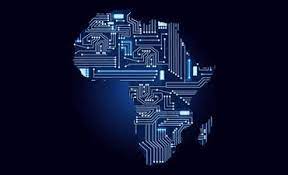In an era where nations like China commit $150 billion and South Korea nearly $1 billion to their AI industries over the next two decades, the absence of a Pan-African billion-dollar investment in AI raises critical questions. Where are the burgeoning multitudes of young minds training to become machine learning specialists, data scientists, and AI experts? The jobs we cherish today are at risk of being eclipsed by AI advancements, rendering them more efficient, faster, and cost-effective, ultimately vanishing from the employment landscape. While Africa, particularly Nigeria, indulges in the opulence of yacht clubs, sipping crude oil from Champagne glasses and self-congratulating on cleverness, the rest of the world propels itself swiftly into the next technological epoch.

This challenge transcends the riches buried in the ground; it lies in the intellectual prowess on our heads. Africa has the potential to rival any other nation in this game; a transformation into a new, smart, and intelligent Africa is imperative. Over the next 20 years, the impact of AI on Africa can be transformative, influencing society, economy, and technology. Amid challenges, opportunities abound for Africa to harness AI for development and progress.
Economic Growth and Innovation: Despite the current scarcity of AI investment, Africa can emulate China and South Korea, fostering economic growth through a billion-dollar AI industry, global partnerships, and job creation.
Education and Skill Development: Focusing on training a new generation in machine learning, data science, and AI is crucial. Investment in education and vocational training empowers youth to actively participate in the AI revolution.

Job Transformation and Adaptation: Acknowledging AI's impact on traditional jobs, Africa can proactively upskill its workforce, foster entrepreneurship, and create new opportunities in AI-related fields.
Strategic Resource Utilization: Beyond natural resources, Africa's human potential can be unlocked by shifting focus to technology-driven sectors. AI can optimize resource management, improve agriculture, and enhance healthcare.
Global Technological Competitiveness: Africa can position itself as a global tech player through research, innovation hubs, and collaboration, contributing significantly to AI advancements.
Smart and Intelligent Africa: Embracing smart technologies improves governance, infrastructure, and overall quality of life. AI applications in healthcare, agriculture, and urban planning address societal challenges and foster sustainable development.

Policy and Regulatory Frameworks: Developing robust AI policies ensures ethical and responsible use. Learning from global best practices addresses data privacy, security, and transparency. In conclusion, the next two decades present a pivotal window for Africa to shape its AI future. Strategic investments, education, and technological embrace can propel the continent not only to keep pace globally but to lead in the AI landscape, emphasizing Africa's potential beyond ground resources to intellectual capacity.

